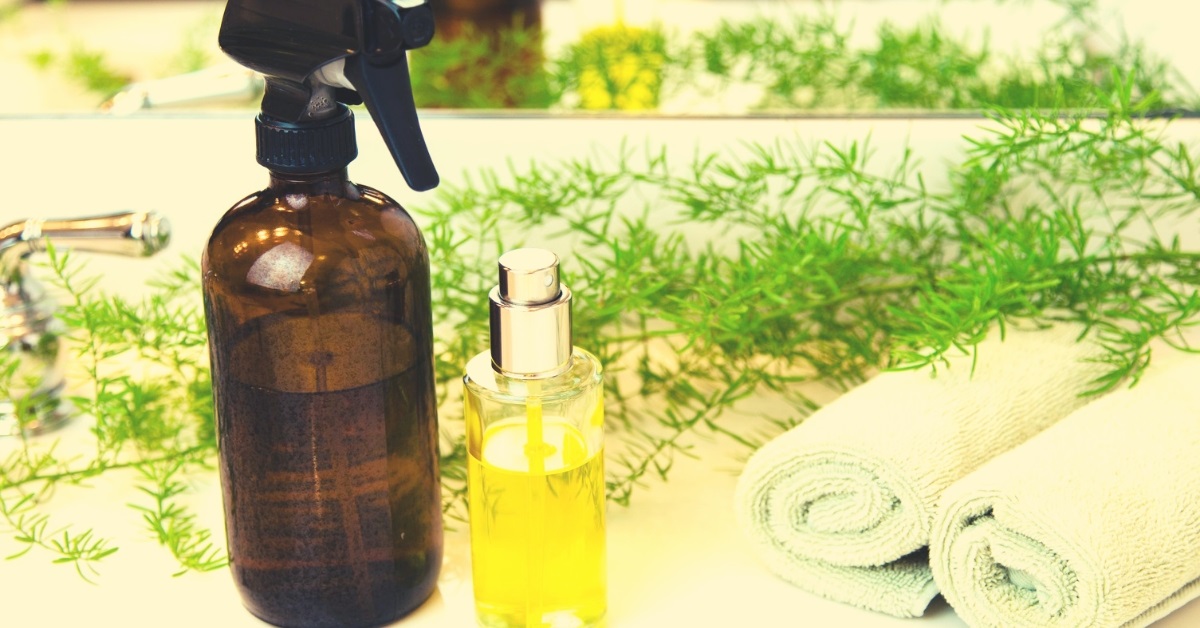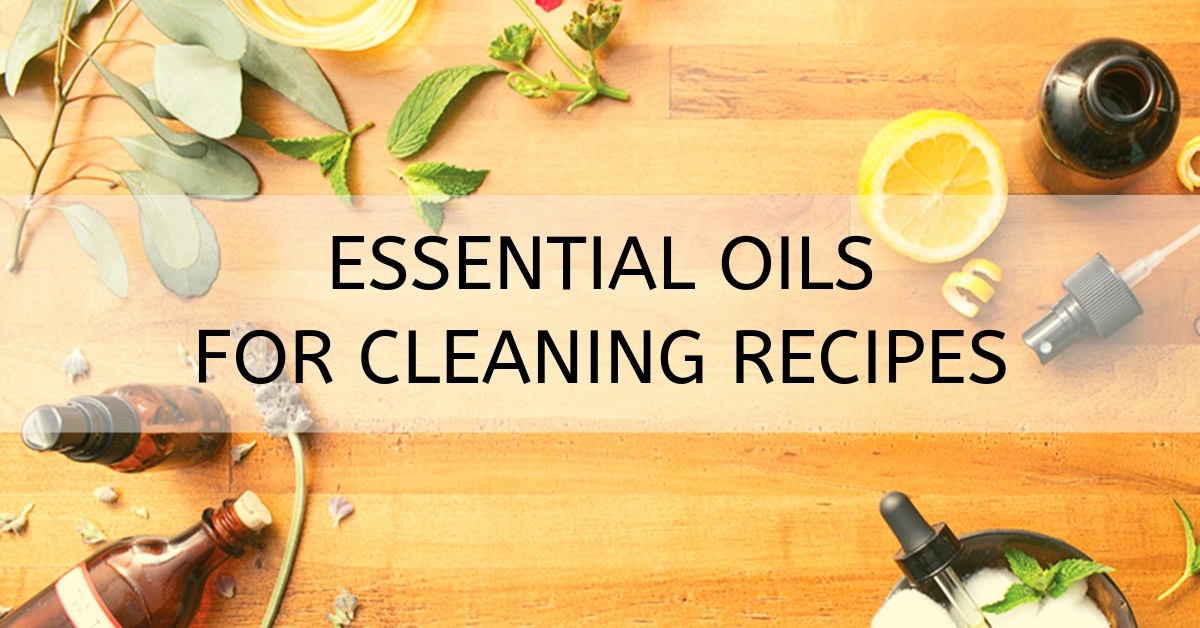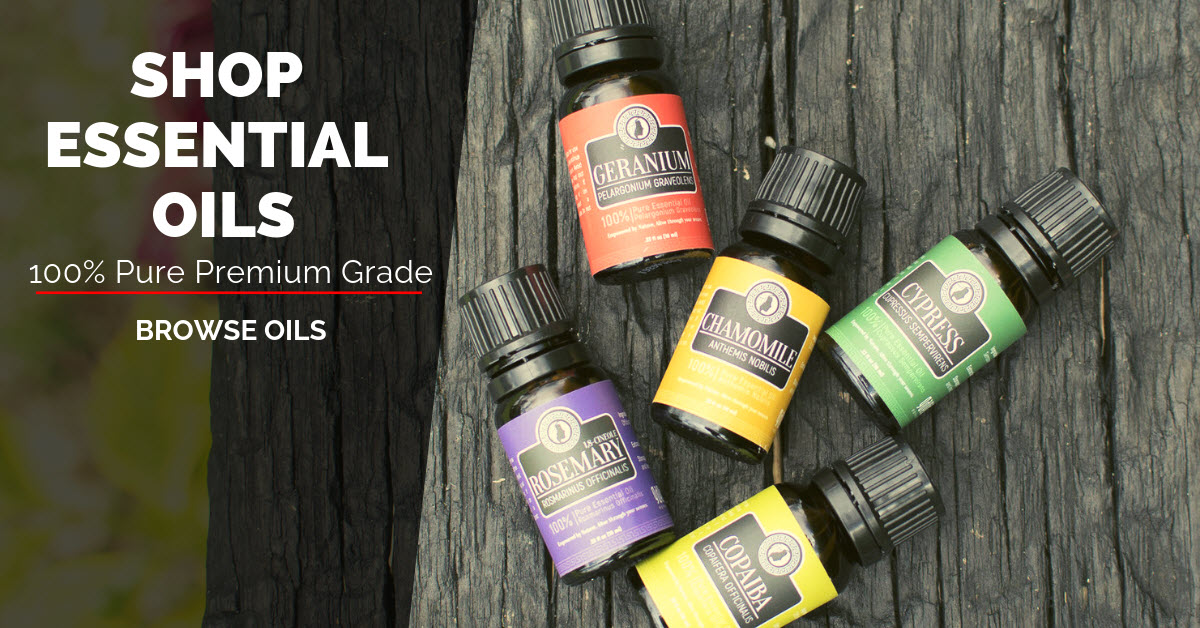Whether we like it or not, cleaning is an indispensable part of our lives. Keeping our home clean shows respect and care for the place that hosts our feelings, thoughts, memories and moments with the people we love. It is where we find comfort and strength to start each day with a smile!
Looking for a natural alternative to those toxic chemical house cleaners? My favorite way is using essential oils.
Why Essential Oils Are GREAT For Cleaning
Many studies have shown that essential oils have disinfectant properties and are good for breaking down grime and grease.
You can very easily create your own effective natural household cleaners without breaking the bank, and, most importantly, by doing so, you can protect both yours and the children’s health from the short and long-term negative effects of those aggressive chemical agents.
Using essential oils for cleaning is especially beneficial for people who suffer from asthma, respiratory problems, sensitive or reactive skin as well as older people and children.
And guess what! They are safe for the environment, too, so it’s a win-win situation.
Best Essential Oils For Cleaning
1. Lemon Oil (Citrus limonum)
Classic and powerful, lemon is rich in Limonene, a monoterpene with an antiviral effect. Traditionally, it has been used as a bactericidal and is great for dissolving dirt and grease.
To absorb bad smelling fridge odors, mix 7 drops of lemon with a tsp. of vodka and pass over the shelves using a cloth.
The smell of cigarette smoke can linger in the air for hours and stick to fabrics and clothes. To create a deodorizing and fabric freshening spray, mix 18 drops of lemon with 1 tbsp. of grain alcohol in a 2 oz glass bottle spray and fill it up with distilled water.
2. Thyme Oil (Thymus vulgaris)
There is something deeply reviving in the herbaceous aroma of thyme, but is this enough reason to make it one of your top options for cleaning?
Why don’t we let science speak? Studies have shown that thyme is the most effective oil against Staphylococcus aureus and can prevent various bacterial strains from appearing.
- 15 Drops of thyme diluted in a bit of grain alcohol and mixed with 50 ml of water will give you a great solution for killing bacteria found on daily use items such as sports equipment, yoga mats or garbage bin covers.
- The solution can also be used to disinfect kitchen counter tops where food is prepared, kitchen utensils and as a general bathroom disinfectant.
3. Clove Bud Oil (Syzygium aromanticum)
One essential oil that emotionally brings the best in me is clove bud. Its main component, Eugenol has shown to have a strong effect against fungi, candida, and yeasts.
Due to its potential to eliminate environmental fungi, it can be used in the house to protect people from getting a respiratory infection.
My favorite way to use clove bud is by diffusing it. Diffusion can eliminate airborne pathogens during the common cold of flu season.
Its sweet, rich, seductive and uplifting aroma can also enhance mood and relieve stress, which is an additional benefit if somebody in the house is sick.
4. Oregano Oil (Origanum vulgare)
Often overlooked by essential oil users, Oregano is a powerful earthy oil cited as one of the most effective antimicrobial oils. This is due to Carvacrol, its main chemical component, which, according to various studies, exhibited antifungal and antiviral properties.
- Oregano is great for getting rid of head lice that are left behind on household items. Dilute some drops in a natural liquid soap to disinfect bed sheets, pillow covers, clothes as well as hair brushes and combs from lice.
- For an oregano mist that repels flies and mosquitoes mix 15 drops of oregano with a bit of grain alcohol and pour it into a 50 ml. glass spray bottle. Then, fill it up with water.
5. Tea Tree Oil (Melaleuca alternifolia)
The strong antimicrobial, antiviral and anti fungal uses and benefits of tea tree compensates us for the aromatic turmoil it can inflict for some.
It is great for breaking down mildew and mold found in the shower, bathtub or bathroom basin.
- Mix 15 drops of tea tree with 1 tbsp. of Castile soap flakes and 2 cups of water. apply and leave it on for a few minutes, then wipe the mold down.
6. Grapefruit Oil (Citrus paradisi)
Like the rest of the citrus cousins, grapefruit is good at breaking down grease and its refreshing aroma can help you feel alive and vibrant while trying to remove those fried egg oily stains from your kitchen tiles.
If your friends ask you what you are using to clean the kitchen, can you think of a better way to attract some wows than replying ‘my Grapefruit cleaner?’
- Mix 10 drops of grapefruit with 1 tsp. of vodka and 1 cup of water. Use from a spray bottle.
7. Eucalyptus Oil (Eucalyptus globulus)
A lot of people may know eucalyptus as a strong mosquito repellent but it has been traditionally used as an anti-microbial and anti-viral agent with a positive effect against airborne pathogens.
Eucalyptus has a strong medicinal and earthy aroma that talks power and efficiency.
Kitchen sinks are often the breeding haven for bacteria due to the high levels of moisture. As a bonus, it eliminates the bad smell emanating from the drain connected to the kitchen sink.
- Use eucalyptus to create a natural sink cleaner by mixing 1 cup of water with 1 tbsp. of white vinegar and 8 drops of eucalyptus.
- Remove black heel marks by adding 2-3 drops of eucalyptus to a cloth and rub over those marks.
8. Lavender Oil (Lavandula angustifolia)
The smell of lavender instantly recalls memories of a fresh smelling house that feels clean and welcoming.
This oil has many uses for cleaning and one of them is eliminating unpleasant odors in the air as well as in fabrics. Studies have shown that it has a positive effect on eliminating air pathogens, too.
Looking forward to cleaning your house? These may not be the best words to describe what most people feel about cleaning which can actually trigger stress in many cases.
- Diffusing lavender in the air can reduce stress and help you feel more positive and calm due to lavender’s sedative and emotionally balancing properties.
- To deodorize your vacuum cleaner and freshen the air while you are cleaning, add some drops of lavender to the vacuum cleaner filter.
Essential Oils For Cleaning Recipes
Floor Mopping Liquid For Disinfecting
I love how fresh and clean my floor smells and looks at the end of every essential oil cleaning session and I have also noticed that I get fewer insects visiting.
You can use this recipe for all kinds of floors such as hardwood, tile, ceramic, linoleum or laminate.
If you are concerned about the effects of essential oils on your pets, rest assured. Small or moderate amounts of essential oils will not harm the animal. Especially when it comes to mopping and as long as the pet does not drink from the bucket, the use of essential oils is safe.
- 1 bucket of warm water
- 1 tsp. of castile soap flakes
- 5 drops lemon
- 5 drops tea tree
- 5 drops eucalyptus
- 5 drops lavender
Put the castile soap flakes to a glass bowl and add the essential oils. Mix well all the ingredients. Add the mixture to the water. Stir the content till the soap gets diluted using your mop, and you are ready to go!
Dusting Spray Mist For Wood
Looking for a natural and healthy alternative to those chemical-laden dusting sprays and furniture polishes?
This essential oil spray mist will not only remove the dust from your wood furniture but leave it with a nice shine as well. It is only recommended for finished wood.
- I cup of water
- Less than half tsp. of olive oil
- 3 drops lavender
- 2 drops clove bud
Mix the olive oil with the essential oils in a glass bowl. Add the water and stir well. Use a glass spray bottle to store the liquid.
Lightly mist the wood and wipe it down using a microfiber cloth or any other soft cloth. Microfiber is best for capturing the dust.
Natural All-Purpose Cleaner
This recipe works for disinfecting different surfaces except on wood.
If there are some tougher spots to clean, you might need to rub and scrub the area first using some hot soapy water in order to make the disinfectant job of your essential oil cleaner easier.
- 3.5 oz water
- Half tsp. of natural liquid soap
- 1.5 tbsp. of white vinegar
- 9 drops lemon
- 8 drops thyme
- 7 drops clove bud
- 6 drops grapefruit
In a glass bowl dilute the essential oils into the liquid soap. Add the vinegar and stir. Follow with the water. Pour the mixture into a 4 oz glass spray bottle.
Spray on the surface and let the cleaner on for a few minutes. Then, wipe off.
To Summarize
- Today, common household cleaners are full of chemical toxic ingredients that are irritating and damaging to the health of adults, kids, and especially people with asthma, respiratory problems, and sensitive skin.
- Essential oils provide a safe, efficient and cost-effective natural alternative to those chemical laden products.
- Best disinfectant oils are thyme, eucalyptus, oregano, tea tree, and clove bud. Lemon is best for de-greasing and together with lavender, they make a strong duo for eliminating unpleasant odors.
- There are many recipes with essential oils for cleaning. For example, you can create your own wood dusting mist spray, bathroom disinfectant cleaner or floor mopping liquid.
Read more:



